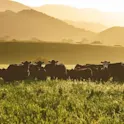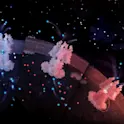1,071 news posts

Featured news
12 Sep 2019
Researchers identify cancer killing capability of lesser-known immune cells
Linked with obesity, esophageal cancer is one of the fastest growing cancers in the Western world. Image: Shutterstock. Finding new ways to reverse the inhibition of ‘MAIT’ immune cells could transform the prognosis of esophageal cancer — by Trinity College Dublin Researchers at Trinity College Dublin have identified, for the first time in esophageal cancer, the cancer killing capability of a lesser-known type of immune cell, presenting a new potential therapeutic target. Their research is published in Frontiers in Immunology. Esophageal cancer is a very aggressive type of cancer with poor prognosis, and the 5-year survival rate is typically less than 15%. Linked with obesity, esophageal cancer is one of the fastest growing cancers in the Western world and incidence is due to double in Ireland within the next few decades. Current treatment strategies work well but only for a minority (approx. 25%) of patients so new treatment options are urgently needed. New treatment strategies targeting the immune system have had revolutionary effects in other cancer types, but the latest clinical trials show that, disappointingly, immunotherapy offers no real benefit for the majority of patients with oesophageal cancer. Mucosal-Associated Invariant T Cells Display Diminished Effector Capacity in Oesophageal Adenocarcinoma► Read original […]

Featured news
11 Sep 2019
The vagina monocultures
Johns Hopkins team develops donor screening for vaginal microbiota transplantation; Frontiers in Cellular and Infection Microbiology

Featured news
10 Sep 2019
Skin bacteria could save frogs from virus
Ranavirus can wipe out entire common frog populations, but researchers say their latest study could help the species; Frontiers in Microbiology

Climate action
06 Sep 2019
New insight from Great Barrier Reef coral provides correction factor to climate records
Researchers have fine-tuned the records used to make global climate predictions using high-resolution microscopic techniques and geochemical modeling; Frontiers in Marine Science

Featured news
05 Sep 2019
Wolf-dog ‘swarms’ threaten Europe’s wolves
A new study reveals that scientists are divided on issues such as how to remove hybrids and free-roaming dogs, and whether they should be kept captive, sterilised and released or killed; Frontiers in Ecology in Evolution

Featured news
02 Sep 2019
Cometh the hourglass: Why do men prefer a low waist-to-hip ratio?
Waist-to-hip ratio can signal sex, age, pregnancy, parity — as well as capacity for offspring brain development; Frontiers in Psychology

Featured news
29 Aug 2019
A new vision for genomics in animal agriculture
The USDA blueprint predicts genomic technologies will play an increasingly central role in global livestock production; Frontiers in Genetics

Featured news
28 Aug 2019
Exploring the origins of the apple
The wild apples in the Tien Shan Mountains represent the main ancestral population for our modern apple. These trees produce large fruits, which are often red when ripe and have a varying array of flavors. These were the ancestors of the trees that people first started to cultivate and spread along the Silk Road. Image: Shutterstock. Apples originally evolved in the wild to entice ancient megafauna to disperse their seeds; more recently, humans began spreading the trees along the Silk Road with other familiar crops; dispersing the apple trees led to their domestication — by Max Planck Institute for the Science of Human History Recent archaeological finds of ancient preserved apple seeds across Europe and West Asia combined with historical, paleontological, and recently published genetic data are presenting a fascinating new narrative for one of our most familiar fruits. In this study, Robert Spengler of the Max Planck Institute for the Science of Human History traces the history of the apple from its wild origins, noting that it was originally spread by ancient megafauna and later as a process of trade along the Silk Road. These processes allowed for the development of the varieties that we know today. Origins of […]

Environment
27 Aug 2019
Study documents impacts of selective logging on Congo’s intact forest landscapes
Logging in the timber-rich forests of northern Congo is a major driver of the region’s economic development — and its ecological impoverishment; Frontiers in Forests and Global Change

Climate action
26 Aug 2019
Marching for climate change may sway people’s beliefs and actions
US climate marches increased optimism about people’s ability to work together to address climate change, according to a survey of bystanders; Frontiers in Communication

Featured news
23 Aug 2019
The fat of the land: estimating the ecological costs of overeating
Overeating is bad for our planet’s health, not just our own. Image: shutterstock. Overeating wastes far more food than we throw away, suggests research — by Matthew Prior, Frontiers science writer With every unfinished meal since Band Aid, you’ve heard it: “people are starving in Africa, y’know”. True, the UN estimates that rich countries throw away nearly as much food as the entire net production of sub-Saharan Africa – about 230 million tonnes per year. But is it any less a waste to eat the excess food? Morally, it’s equivocal. Nutritionally, it depends. However: the land, water and carbon footprints are just the same. In fact, researchers in Italy have proposed a way to measure the ecological impact of global food wastage due to excessive consumption. First, they estimated the net excess bodyweight of each country’s population – based on BMI and height data – and distributed its energy content among foods groups according to national availability. Published in Frontiers in Nutrition, the results suggest that direct food waste – thrown away or lost from field to fork – is a mere hors-d’œuvre. Metabolic Food Waste and Ecological Impact of Obesity in FAO World’s Region► Read original article► Download original article (pdf) […]

Featured news
20 Aug 2019
Pores for thought: ion channel study beckons first whole-brain simulation
Blue Brain Project’s ‘Channelpedia’ is open to brain modellers everywhere; Frontiers in Cellular Neuroscience

Featured news
15 Aug 2019
Winter is coming: a stark divide in red-neck phalarope migration
Red-neck phalaropes split between the Pacific Ocean and the Arabian Sea for the colder months, researchers discover; Frontiers in Ecology and Evolution

Environment
13 Aug 2019
Growing existing forests essential in mitigating global crises
“Proforestation” has significant potential in the United States; Frontiers in Forests and Global Change

Featured news
09 Aug 2019
The mind-muscle connection: for aesthetes, not athletes?
Focusing on movement instead of muscle can enhance weightlifting performance, suggests research; Frontiers in Sports and Active Living